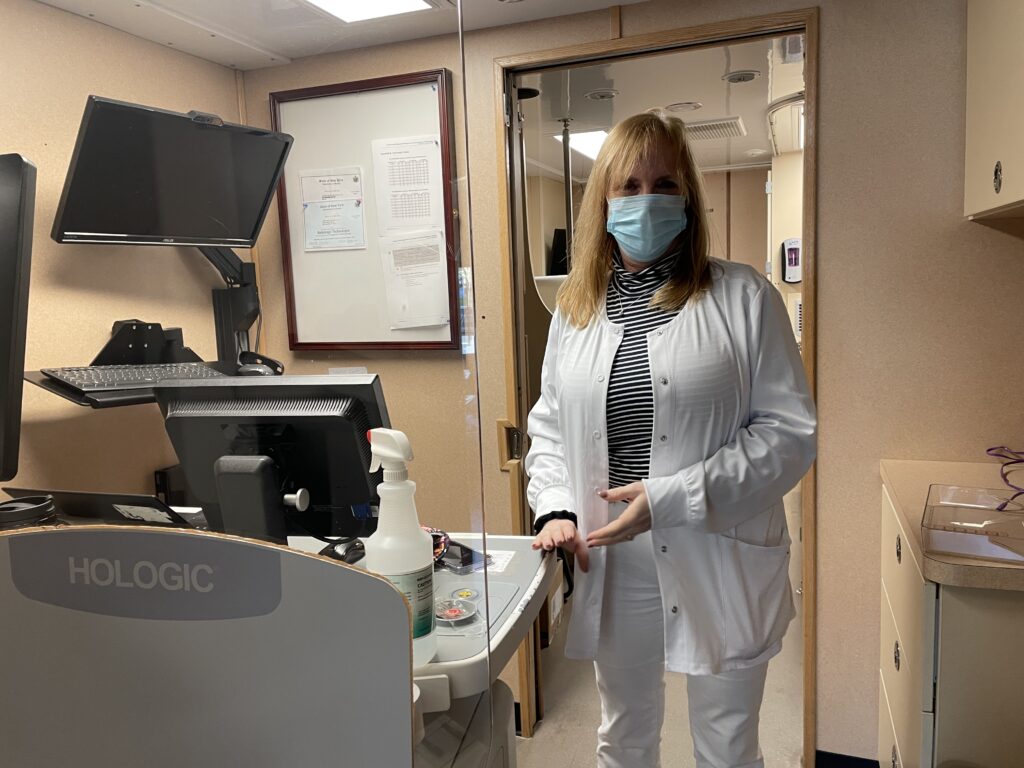
By Amanda Moses
Did you know one in eight women will be diagnosed with breast cancer in their lifetime? The American Cancer Society reports that breast cancer is one of the most common and deadly diseases both men and women face. In light of these staggering statistics, organizations like Project Renewal’s ScanVan are combatting it through early detection methods in the country’s first mobile mammography and radiology clinic for homeless and uninsured adults.
On November 16th, the ScanVan, in conjunction with Spring Creek Senior Partners, paid a visit to Spring Creek Towers (SCT), offering women a clinical breast exam, on the spot mammogram, tuberculosis (TB) tests, and health education. Parked outside of 160 Schroeders Avenue, from 10am to 2pm all women 40 and older (who have not had a mammogram in the past year) were invited to visit the ScanVan. This service was free for all uninsured women over 40 and co-payments/deductibles were waived for those with insurance.
“What we have here is great. You don’t have to do to a doctor’s office and wait. It’s pretty much 15 minutes from start to finish and that’s the beauty of it,” said Cindy Heller, a ScanVan technician.
Heller described the entire process as seamless, quick and the results are immediately sent to a doctor for review. After the mammogram, a nurse does a breast exam and provides education materials on how the patient can perform self-examinations.
“I have a pamphlet section for the patients. As I do the clinical breast exam, I do tell them how they should do it and what they should look for,” said Nancy Moravec, a nurse with ScanVan.

Approximately 18 seniors stopped by the ScanVan; however, only 10 were able to obtain the mammogram since the others had already received their annual exam within the past year.
“Last year, 4 out of every 10 uninsured women did not receive a mammogram,” Project Renewal states on their website. In one year, the organization shared that they’ve screened 4,479 low-income women for breast cancer, detecting breast cancer in 12 patients. The help does not stop there. ScanVan also ensures follow-up care for those who’ve had breast cancer detected.
“If they need additional images, we contact the person and there are navigators who tell them where to go and we help them,” Heller said.
Photos by Amanda Moses



